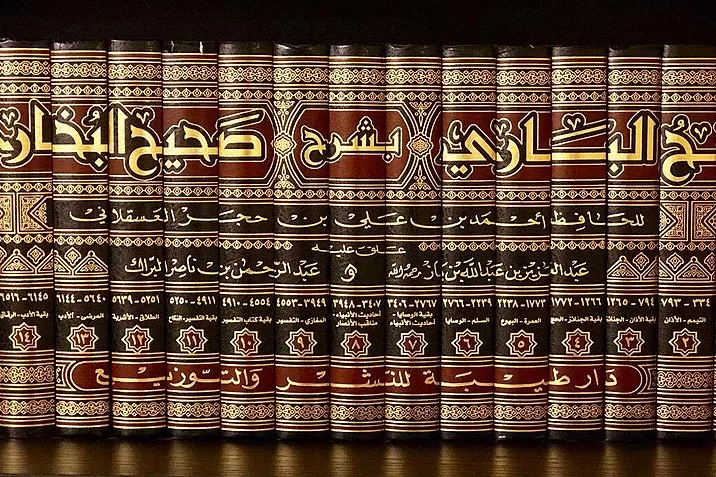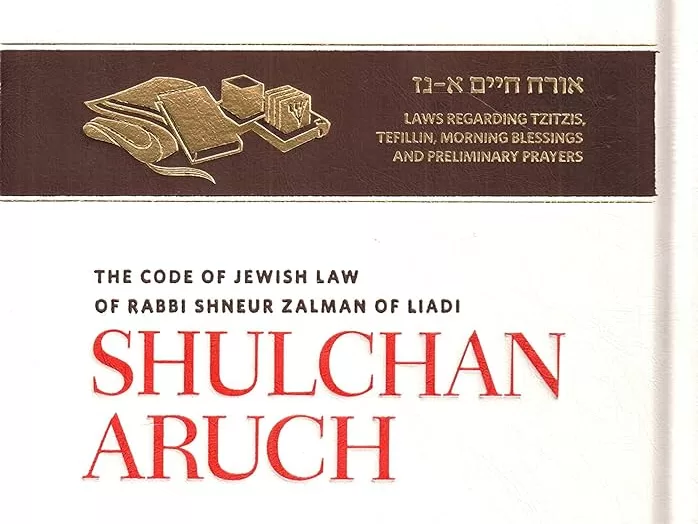Fasting is found in every religious tradition as a form of penance, purification, and spiritual discipline. It is undertaken with the understanding that physical discomfort elevates spiritual status. In Christian, Hindu and Buddhist traditions, extreme form of ascetic practices with prolonged seclusion and fasting is used as a vehicle of purification. Judaism and Islam are ortho-practice religions regulating every aspect of daily lives and in both religions, such extreme ascetic practices are not encouraged, and a moderate stance is advocated. This is the reason for a detailed discussion of rules of fasting in both religions.
In Judaism, there are two major fast days on Yom Kippur and Tisha B’Av. Yom Kippur is Day of Atonement and Tisha B’Av commemorates the destruction of the First and Second Temples in Jerusalem and other tragedies in Jewish history. Both are full fast days beginning at sunset and ending at nightfall the following day when one abstains from food, drink, washing, and sexual relations. There are three minor fast days when one abstains from food and drink from dawn to dusk like Muslim fasting schedule. The fast of Tzom Gedaliah occurs on the day after Rosh Hashanah and commemorates the assassination of Gedaliah, the governor of Judah, which led to further devastation for the Jewish people.
The Fast of Esther precedes the holiday of Purim and commemorates the fast observed by Queen Esther and the Jewish community in Persia before she approached King Ahasuerus to intercede on behalf of her people and the fast of the Seventeenth of Tammuz marks the beginning of a three-week period of mourning leading up to Tisha B’Av. It commemorates five tragic events (Moses broke the tablets when he saw his followers worshipping the golden calf, sacrifices at the temple were ceased during the Babylonian siege of Jerusalem, Apostomos burned the Torah, an idol was placed in the temple and breaching of the walls of Jerusalem by Romans before the destruction of the Second Temple).

In the Tanakh (Hebrew Bible), fasting is mentioned in Nehemiah 9:1 “On the twenty-fourth day of this month, the Israelites assembled, fasting, in sackcloth, and with earth upon them” and in I King 21:12, “they proclaimed a day of fasting and sat Navos at the head of the people”. Fasting is mandated in Leviticus 16:29 “and this shall be to you a law for all time:
In the seventh month, on the tenth day of the month, you shall practice self-denial” and 23:25 “Mark, the tenth day of this seventh month is the Day of Atonement. It shall be a sacred occasion for you: you shall practice self-denial” and self-denial is interpreted as fasting.
In the Quran in surah Baqarah 2:183, when mandating fasting for Muslims, it confirms that fasting was prescribed for nations before them stating that “O believers! Fasting is prescribed for you, as it was for those before you, so perhaps you will become mindful ‘of Allah’” and Baqarah 2:184 “Fast a’prescribed number of days”.
Both religions stress on the intention of fasting and not mere ritual. In Isiah 58 – 5-7 “Is such the fast I desire, a day for people to starve their bodies? Is it bowing the head like a bulrush? And lying in sackcloth and ashes? Do you call that a fast? A day when GOD is favorable. No, this is the fast I desire: To unlock fetters of wickedness”. In Talmudic writings in Sforno on Leviticus 23:27:1, the prophet sarcastically chastises the people who, while technically fasting, expect God to listen to their requests while they continue in their wicked ways.
In Muslim Hadith traditions, a similar message is conveyed in Sahih Bukhari, Volume 3, Book 31, Number 127, it is narrated by Abu Huraira that the Prophet said, “Whoever does not give up forged speech and evil actions, Allah is not in need of his leaving his food and drink”.
Hadith traditions are very explicit that Muslims adopted the Jewish practice of fasting. Before fasting of Ramadan became mandatory, the Prophet and early Muslims used to fast on the Day of Yum Kippur called Ashura. Ibn ‘Abbas narrated that “the Prophet came to Medina and saw the Jews fasting on the Day of Ashura. He asked them about that. They replied, “This is a good day, the day on which Allah rescued Bani Israel from their enemy. So, Moses fasted this day.”
The Prophet said, “We have more claim over Moses than you.” So, the Prophet fasted on that day and ordered (the Muslims) to fast (on that day). (Sahih Bukhari, Volume 3, Book 31, Number 222). Same narration is also recorded in Sahih Muslim, Book 6, Number 2518 & 2520.
The non-obligatory fasting is preferred on Mondays and Thursday in both religions. In Ta’anit 12b:11, “The individuals, i.e. Torah scholars resume fasting every Monday and Thursday until the month of Nisan ends”. It was narrated from Abu Hurairah that the Prophet used to fast on Mondays and Thursdays,

“O Messenger of Allah, why do you fast on Mondays and Thursdays?” He said: “On Mondays and Thursdays Allah forgives every Muslim except two who have forsaken one another. He says: ‘Leave these two until they reconcile.’ (Sunan Ibn Majah, Volume 1, Book 7, Number 1740).
Both religions also forbid fasting on festival days. In Judaism, fasting is prohibited on Sabbath (Friday evening to Saturday evening). In Hadith traditions, prohibition of fasting on Friday is narrated by Muhammad ibn Abbas, “I asked Jabir “Did the Prophet forbid fasting on Fridays?” He replied, “Yes.”
(Sahih Bukhari, Volume 3, Book 31, Number 205) and by Abu Huraira, “I heard the Prophet saying, “None of you should fast on Friday unless he fasts a day before or after it.” (Sahih Bukhari, Volume 3, Book 31, Number 206).
In Megillah 5b:3 “Feasting teaches that fasting is prohibited” and Rashi on Esther 4:17:1 “So Mordecai passed i.e. he transgressed the law by fasting on the first festive day of Passover.”
In Sahih Bukhari, Volume 3, Book 31, Number 211, prohibition of fasting on the feast days of Eid is narrated by Abu Ubaid (The slave of ibn Azhar),
“I witnessed the Id with Umar bin al-Khattab who said, Allah’s apostle has forbidden people to fast on the day on which you break fasting (the fasts of Ramadan) and the day on which you eat the meat of your sacrifices (the first day of Id ul Fitr and Id ul-Adha) and also narrated by Abu Sa’id, “the Prophet forbade the fasting of ‘Id-ul-Fitr and ‘Id-ul-Adha (two feast days)”.
(Sahih Bukhari, Volume 3, Book 31, Number 212).
Talmudic and Hadith traditions and commentaries give detailed rules about fasting and exceptions. In Mishnah Torah Fasting 1:9, “the Rambam mentions fasting on behalf of another person”. In Sahih Bukhari, Volume 3, Book 31, Number 174, narrated by Ibn Abbas, “A man came to the Prophet and said, “O Allah’s Apostle! My mother died and she ought to have fasted one month (for her missed Ramadan). Shall I fast on her behalf?” The Prophet replied in the affirmative and said, “Allah’s debts have more right to be paid.”

In both religions, a believer is exempt from fasting if it is injurious to health. Kitzur Shulchan Arukh 141:2, “thus pregnant and nursing women, or even a person who is slightly ill with an eye irritation should not fast, if fasting would be greatly discomforting to them.” In the Quran surah Baqarah 2: 184, ˹Fast a prescribed number of days. But whoever of you is ill or on a journey, then let them fast˺ an equal number of days ˹after Ramaḍân˺. For those who can only fast with extreme difficulty, compensation can be made by feeding a needy person ˹for every day not fasted˺”. Shulchan Arukh, Orach Chayim 574:2, “One who is going from a place that is not fasting to a place that is fasting, he should fast with them even if his intention is to return”. In Islam, similar instructions are given to the traveler that if he is fasting and arrive in a city that is celebrating Id then he should break his fast and vice versa.
Fasting holds significant spiritual and cultural importance in both Judaism and Islam, with many similarities. While both Judaism and Islam emphasize fasting as a means of spiritual purification and closeness to the divine, there are differences in the specific practices and regulations associated with fasting in each religion.
Notes
1. Abdelwahab Meddeb and Benjamin Stora (Editors). A History of Jewish-Muslim Relations – From the Origins to the Present Day (Princeton: Princeton University Press, 2013)
2. Reuven Firestone. Rituals: Similarities, Influences, and Processes of Differentiation in Abdelwahab Meddeb and Benjamin Stora (Editors). A History of Jewish-Muslim Relations – From the Origins to the Present Day (Princeton: Princeton University Press, 2013), p 701-711)
3. Sefaria. This is the most comprehensive site of Jewish texts. Translations used in this article are from this site. https://www.sefaria.org/texts
4. The Noble Quran. An easy-to-use site with Arabic text and English translation. Translations used in this article are from this site. https://quran.com/en
5. Sahih Bukhari in Hadith Collection. A user-friendly site about books of Hadith. Translations used in this article are from this site. https://hadithcollection.com/sahihbukhari
6. Sahih Muslim in Hadith Collection. A user-friendly site about books of Hadith. Translations used in this article are from this site. https://hadithcollection.com/sahihmuslim
7. Sunan Ibn Majah, https://sunnah.com/ibnmajah





